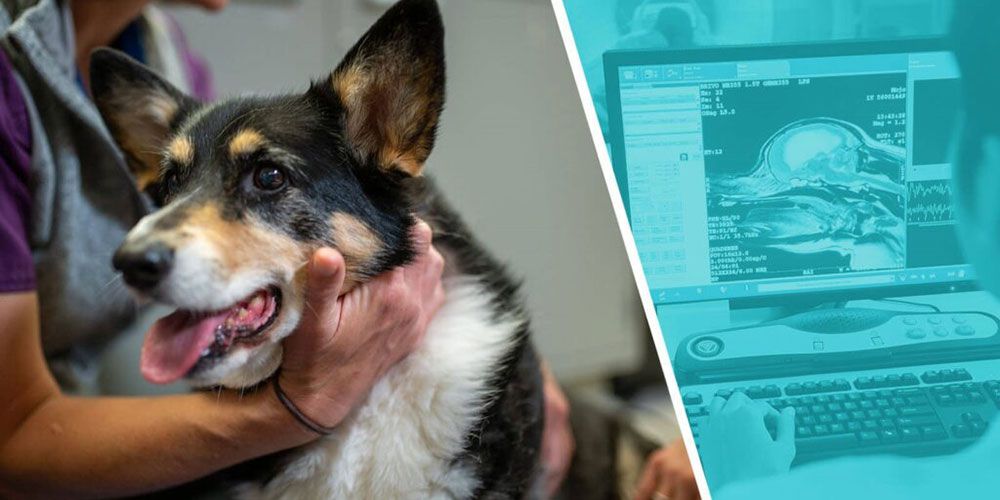As an aspiring animal doctor, you know there are several types of veterinarians—and you’ve likely envisioned yourself in a number of those different roles. If you’re looking for a highly specialized veterinary career that will be as gratifying as it will be challenging, veterinary neurology could be a great fit.
Just as neurologists do with human patients, veterinary neurologists work toward the diagnosis and treatment of disorders of the central nervous system in animals. But what does that actually look like in practice?
Join us as we explore the basics of what it’s like to work in veterinary neurology.
What is veterinary neurology?
Put simply, veterinary neurology is the practice of monitoring the health of an animal’s spinal cord and brain—but there’s a lot that goes into it. Pets’ central nervous systems are comprised of the following elements:
- The spinal cord: In pets like cats and dogs, this is divided into various regions, ranging from the neck to the tail.
- The brain: Pets’ brains also have multiple regions that control different aspects of their behavior, basic functions, and overall health.
- Tissues and fluid: Animals have specialized tissues and cerebrospinal fluid that surrounds and protects the central nervous system.
Neurological disorders in animals can result from a range of different sources, including injuries, congenital defects, immune system disorders, infections, cancer, and age-related factors. Symptoms that may prompt a referral to a veterinary neurologist include:
- Abnormal gait, unexplained weakness, or paralysis
- Spinal pain
- Seizures and movement problems
- Loss of balance
- Cognitive or behavioral changes
What does a veterinary neurologist do?
As specialists, veterinary neurologists work in partnership with a patient’s primary care team. The Veterinary Specialty Center of Tucson highlights the following as advanced neurology services these practitioners are trained to provide:
- Detailed consultation regarding the brain, spinal cord, and neuromuscular issues
- Advanced imaging such as MRI and CT scans
- Electrodiagnostic evaluations like EMG and EEG
- Neurosurgery
- Ultrasound-guided surgery and other procedures
A veterinary neurologist’s goal is to use these methods to uncover a diagnosis and then craft a treatment plan in tandem with the patient’s primary provider. Common neurological conditions seen in pets like dogs and cats include:
- Intervertebral disc disease (IVDD)
- Meningitis
- Encephalitis
- Epilepsy
- Cancer
- Degenerative disorders
- Peripheral nerve diseases
- Spinal or brain trauma
How to become a veterinary neurologist
Qualified veterinary neurologists must complete some additional training after obtaining their Doctor of Veterinary Medicine (DVM) degrees. Upon graduating from veterinary school, those who pursue this path can expect to complete a one-year internship followed by a three-year neurology residency.
Once residency has been completed, the final step for veterinary specialists looking to practice in the US is to pass a board-certification exam through the American College of Veterinary Internal Medicine (ACVIM).
Build a career as a veterinary neurologist
Now that you know a bit more about what you can expect from a career as a veterinary neurologist, you’ll need to lay a solid foundation for success. That begins by earning your DVM from a well-respected veterinary school.
You can learn more about what you should be looking for in our article “6 Things the Top Veterinary Schools Have in Common.”

